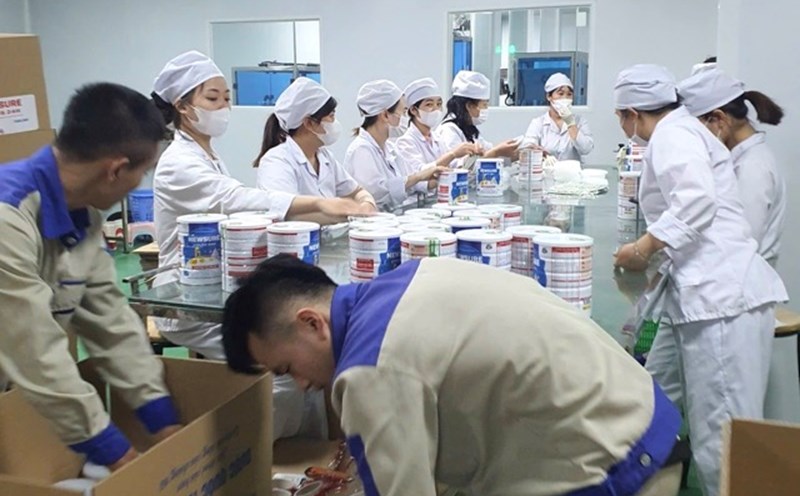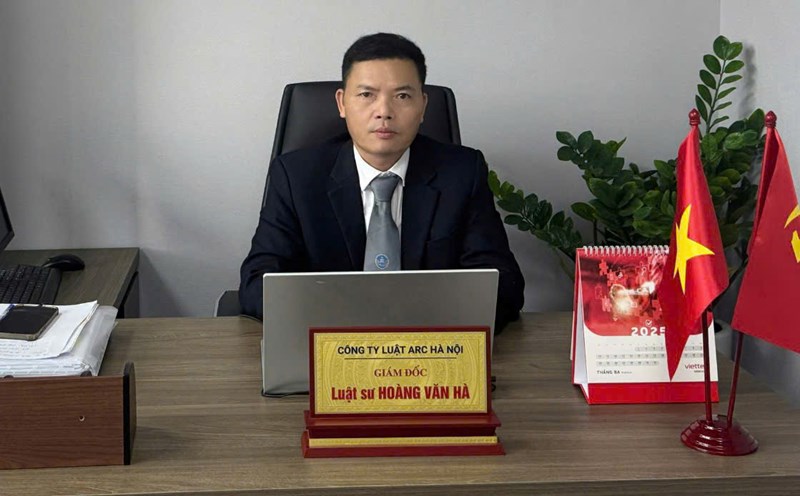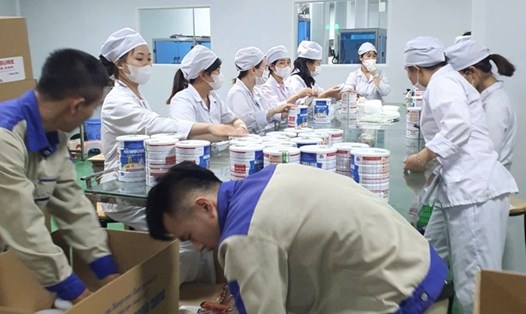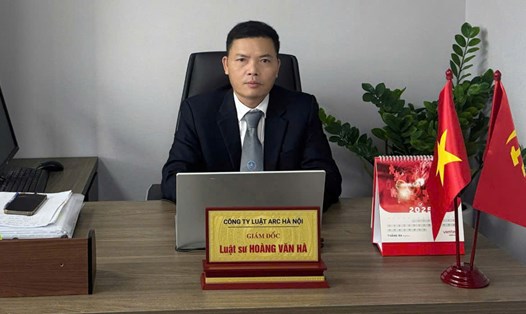The place to receive dozens of product declaration documents of Rance Pharma and Hacofood Group
According to the reporter's source, the Hanoi Food Safety and Hygiene Department (Hanoi Department of Health) has received a dossier to announce 67 products of Rance Pharma International Pharmaceutical Joint Stock Company (Rance Pharma Company - PV) and 4 products of Hacofood Group Nutrition Pharmaceutical Joint Stock Company.
These are products that must register for product declaration because they are health protection foods, medical nutritional foods, foods for special diets; nutritional products for children up to 36 months old.
Meanwhile, the reporter also noted that 30 other products that Rance Pharma Company self- Announced in the period of 2021 - 2022 all have the words "supplementary food" on the front of the brands: TAKESI DIABETES CARE, Betrice SURE GOLD MAT, CELAC SURE PLUS, TAKESI SURE GOLD, SURE IQ Choa - SCHAPE...
Safaco Group International Pharmaceutical Joint Stock Company (belonging to the ecosystem of 9 companies in the fake milk ring that have just been exposed by the police) also self- Announced 3 additional food products in May and July 2021.
Those 3 products are AMIMUM SCHEDULE Supplements, ENSURE AMIMUM Supplements, AMIMUM SCHEDULE Supplements.
Having a new test form can submit a self-declared application
At the investigation agency, the two shareholders contributing capital of Rance Pharma Company and Hacofood Group stated that all information and nutritional content for the production of starch milk were not checked. Moreover, businesses have not actually tested all the nutrients in milk.
The investigation agency said that fake powdered milk produced and consumed by Rance Pharma Company and Hacofood Group was not checked for nutritional content and was not tested for nutrients. Thus, it is very likely that 573 types of united fake powdered milk have been sold on the market.
According to current regulations, the process of declaring the quality of starch milk includes: Step 1 is to test the product. The enterprise prepares samples of powdered milk products, then sets product testing targets. product testing provided by a designated testing room or a testing room recognized as complying with ISO 17025, including safety indicators issued by the Ministry of Health according to the principles of risk management in accordance with international regulations or safety indicators according to corresponding standards and regulations announced by organizations and individuals in cases where there are no regulations of the Ministry of Health.
Step 2 is to self-declare the product. The documents to declare complete starch products include: Business registration certificate; Certificate of product testing results within 12 months from the date of application; Food safety certificate/ISO/HACCP for domestically produced products.
According to the provisions of Decree No. 15/2018/ND -CP, product testing time is from 3-5 working days. The publication time at the agency is 5 working days from the date of testing results. Enterprises register to announce product quality at the Food Safety Management Board (if the establishment has a location in Ho Chi Minh City). If the facility is in the province, it will be registered at the Department of Health/Food Safety Department of that province.
With the process of announcing the quality of starch milk, product testing is a mandatory step as above. Only after the testing results are available will the product declaration documents be accepted.
So the question is whether the 33 brands of supplementary food products that have been approved by the Hanoi Food Safety and Hygiene Department for self-declaration documents have had quality testing results before self-declaration or not?
Are there gaps in regulations on self-declaration of products?
Answering this question, a representative of Hanoi Food Safety Department shared: "Certainly, when announcing or publishing the product itself, the enterprise records have to have test cards. But the test sheet is real or fake, it also needs the police investigation agency.
But according to this representative, the most key issue is that: According to current regulations, this test only includes safety indicators (for example, probiotics, heavy metals, etc.) issued by the Ministry of Health according to the principle of risk management in accordance with international regulations or safety indicators according to corresponding standards and regulations announced by organizations and individuals in cases where there are no regulations from the Ministry of Health.
This test form does not include quality test results, so it is impossible to determine what substances and what content the product contains.
"According to the current provisions of Decree 15, no matter what the quality of the product is, what is contained in it, or what is the content, just ensure that it meets the safety criteria of announcing or self-declaring the product" - this representative analyzed.
Also according to information from the above officer, only about 10% of the nearly 600 types of milk are announced as standards (in the form of self-declaration) at the Hanoi Department of Hygiene and Food Safety, the rest are announced at some other provincial and municipal departments.
Regarding the reason why there are annual post-inspection activities but have never taken samples to test products in this group, the officer said that the list of products that need to be approved for post-inspection, but it is not necessary to take samples to test quality, and the enterprise must check the quota.
"The quality indicators are labelled and the enterprises self-declare and are responsible for the quality, we only check the indicators they announce. This is not a wrong thing but is in accordance with current regulations" - the representative said.
The number of fake milk labels of these companies exposed by authorities is 573, but the self-declared product data that the Hanoi Food Safety and Hygiene Department received for self-declaration in the period from 2021 - 2022 only accounts for about 10%. So there are hundreds of other products, whether there are management records or not? Which provinces and cities are allowed to manage it?
Currently, the Department of Food Safety, Ministry of Health has issued a document requesting local food safety departments to review and update the list of fake milk products that the department has received the quality declaration.











